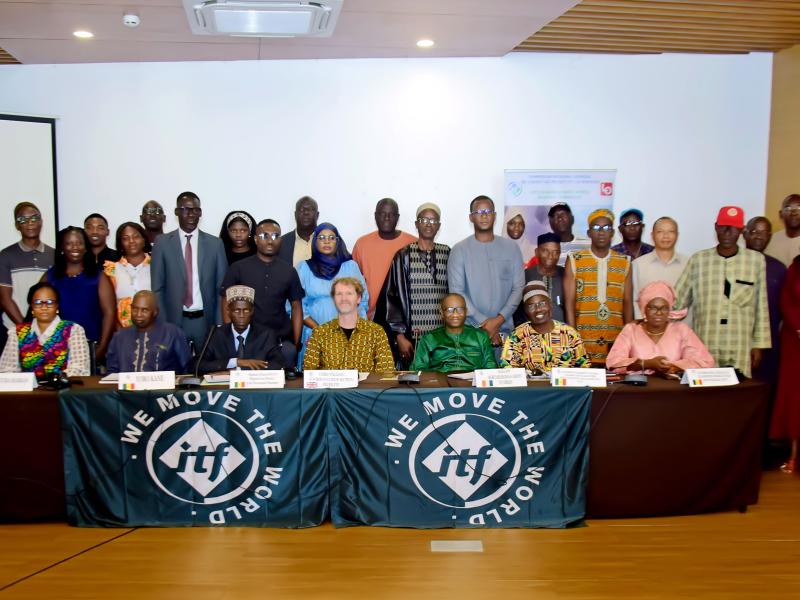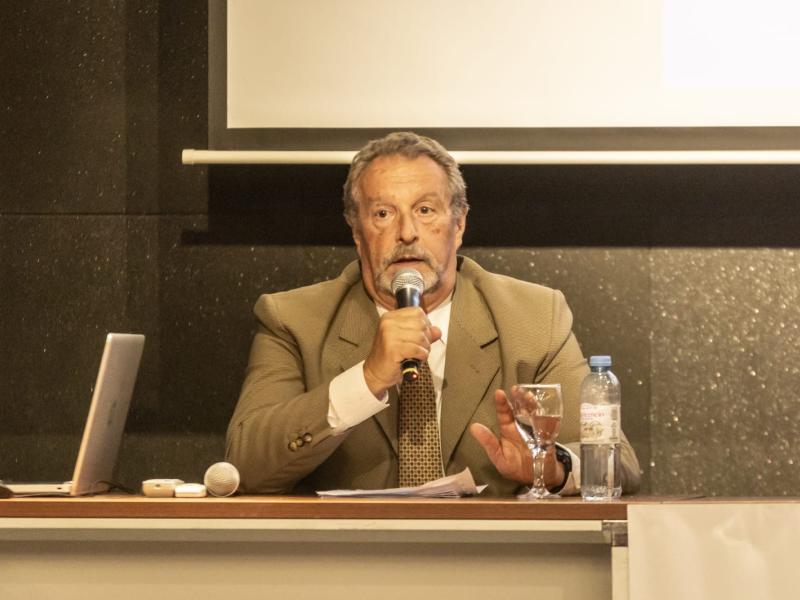- On day five of truck drivers’ strike in Korea, the International Transport Workers’ Federation (ITF) asks the ILO and UN for urgent intervention to halt government violations of workers’ rights.
- Draconian measures against striking truck drivers have been roundly condemned by the ITF, South Korean academics, lawyers and civil society and the international community.
- Strike calls for keeping and extending ‘Safe Rates’ road safety laws which the government agreed in June but has since reneged on.
Amid growing international concern about South Korean government action against striking truck drivers, the ITF together with the Korean Confederation of Trade Unions (KCTU) and Korean Public Service and Transport Workers’ Union (KPTU) today submitted requests to the International Labour Organization (ILO) Director-General and the UN Special Rapporteur on freedom of peaceful assembly and of association. It asked for their urgent intervention to prevent gross violations of workers’ rights, on behalf of truck drivers involved in legitimate strike action.
A national strike started at midnight on 24 November and will continue until the government lives up to its promises on Safe Rates legislation. ITF affiliate, the Korean Public Service and Transport Workers’ Union Cargo Truckers’ Solidarity Division (KPTU-TruckSol) called off a strike in June after the government agreed to continue and extend Safe Rates, a law that sets standards for safe and fair rates of pay for workers, and results in fewer deaths on Korea’s roads. It called this latest strike after the government backtracked on those promises.
“Since before the strike began, members of the South Korean government, including President Yoon Seok-yeol himself, have characterised it as ‘illegal’ and ‘unjustified’, and threatened criminal charges against workers,” said Stephen Cotton, the ITF General Secretary. “Now they are considering invoking provisions that should only be used in extreme emergencies, forcing truckers to work.”
“But this strike is justified. Workers are demanding the government keeps legislation, due to expire at the end of the year, which makes South Korea’s roads safe, not just for drivers but for all road users.”
The government has deployed large numbers of police at strike sites, is using replacement labour and military vehicles and announced that in a cabinet meeting scheduled for 29 November it would deliberate on the use of ‘commencement of work orders’ to force individual drivers back to work. Drivers who receive such orders and do not comply face up to three years in prison or heavy fines. Union sources say the government could begin issuing orders as early as tomorrow.
“These orders would be an extreme violation of civil liberties and of the right to freedom of association,” said Cotton. “Their use would amount forced labour. The international community will not stand by and allow South Korea to employ such repressive measures. We are confident that the ILO Director-General and UN Special Rapporteur will understand the gravity of this matter and intervene swiftly to stop further violations of workers’ rights.”
South Korea has ratified ILO Convention 87 on worker rights and Convention 29 on forced labour. This means the human rights codified in these international rules are legally binding in the country and the government should not flagrantly disregard them.
“ILO Convention 87 protects the rights of all workers, including the self-employed such as the owner-driver members of TruckSol,” explained Ruwan Subasinghe, the ITF’s Legal Director. “It gives people the right to establish and join organisations of their own choosing, including unions. The right to strike is an intrinsic corollary. This is something the South Korean government must respect.”
“A return-to-work order with criminal penalties violates Convention 29 on forced labour. It is ridiculous to claim that the current truck driver strike meets the conditions of an ‘acute national emergency’ under which forced labour is permitted. This is a legitimate strike with reasonable aims.”
“The Republic of Korea Constitution also protects freedom of association and a citizen’s right to be free of forced labour. That the Korean government would so blatantly violate both international and domestic law is mind-blowing.”
KPTU-TruckSol has made clear its members have no plans to comply with return-to-work orders.
“If the government wants the strike to end so badly, they should live up to their promises and agree to a permanent Safe Rates system covering more sectors,” said KPTU-TruckSol president Bongju Lee. “These sorts of bully-boy tactics will get them nowhere.”
Media contact: media@itf.org.uk
About the ITF: The International Transport Workers’ Federation (ITF) is a democratic, affiliate-led federation of transport workers’ unions recognised as the world’s leading transport authority. We fight passionately to improve working lives; connecting trade unions and workers’ networks from 147 countries to secure rights, equality and justice for their members. We are the voice of the almost-20 million women and men who move the world.



